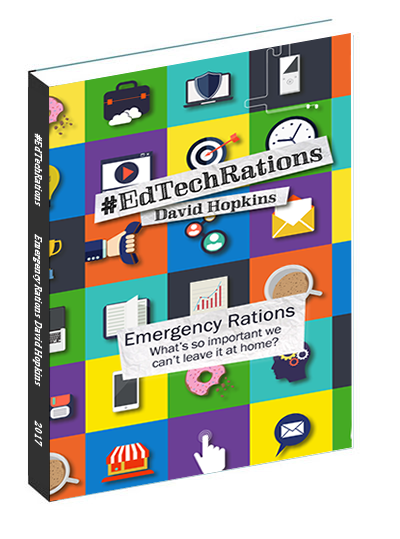Why I failed a MOOC

With all the hype abound at the moment about MOOCs I wanted to try one for the experience, as well as in preparation for perhaps being involved in delivering one or, crickey, running one myself.
So, I enrolled on the Hybrid Pedagogy MOOC, that is “a MOOC about MOOCs … over the course of one week, MOOC MOOC will explore the pedagogical approach, the sustainability of the form, and alternatives to MOOCs.” Sounds good, yes?
So, why did I fail, if you can indeed fail a non-assessed learning course? It’s quite simple – I didn’t start it. The MOOC was something I wanted to do, for myself, but the time frame the MOOC was being run in (between August 12 and 18) was very short, which made consistent attendance very difficult at this very busy time of the year for me. Once I realised I missed the first day I was already behind the schedule and would have to work harder to catch up.
All of this is down to simply my own expectation of my own performance – I like to do well, and to do things properly. In a 5 day period I had set aside the time to attend and engage but just could not commit when it actually came to it – I have a job to do!
Here’s hoping I do better on the Coursera / Edinburgh MOOC next year.
So, what would I do differently next time, or could I have done better this time? Here are a few ideas on how to study, and get the best from, a MOOC (adapted from 25 Tips to Make the Most of a MOOC):
- Commitment – make a realistic commitment of time and effort and keep to it. Be prepared to modify this once you start, you’ll either massively over- or under-estimate the amount of time you need.
- Study Buddy – it works the same as a gym-buddy, you can help each other along with motivation, engagement, or time management.
- Do what you can – by nature of the ‘massive’ name it is likely to have a large number of participants, therefore a large number of discussions and engagement opportunities. Remember you can’t do it all or read it all so do what you can.
- Noise – there will be plenty of noise, don’t add to it for the sake of saying something. Wait until you have something to contribute and make it count.
- Notes – if it helps you get organised, make notes as you go (paper or electronic). There seem to be as many blogs writing about MOOC experiences (a-hem) as there are MOOCs, but it helps show reflection and learning taking place inside the MOOC, but to people who aren’t inside the MOOC.
- Time out – take time out for your job and/or family, it’s not the end of the world if you miss an hour here or day there.
- Persist – see above: it’s about what you can do and what you want to do in the time you have. If you can do a little more, try it.
- Success – keep a record of yor achievements and don’t forget to use them on resumes and/or portfolio websites. It may not be a credit-bearing course but it is experience that counts (or why did you do it?).
Image source: siwild / Flickr


















Thanks for the post David. I’m going to start one very soon through Coursera (Gamification) and I registered out of curiosity to see what it’s like. I also have questions about how it will be conducted, whether I will have the time, motivation and committment to finish it. So we’ll see how we go!
Good luck Helen, let us know how you get on and what the delivery was like (and whether the whole experience matched your expectation)?
All the best, David
Happy to report, I’M FINISHED! Viewed all the videos and submitted the final exam. I now await for some results.
Yes, it was tough going and between full-time work, home commitments and other studies – I’m going to be more well-informed in the future about how much pressure they do put on us.
Even though I enjoyed the course, also sussed out how it was all presented, how they used peer reviews, how it was all set out etc – it’s making me think about whether there’d ever be a MOOC for corporate learning. That is, will someone come up with a MOOC to deliver generic corporate packages (the stuff that some vendors sell off-the-shelf in e-learns) for a corporate market?
Some discussion started here http://www.upsidelearning.com/blog/index.php/2012/09/17/is-mooc-suitable-for-corporate-workplace-learning/
But yet to see anything substantial online…now that would be interesting…
I was struggling myself with staying in this class last night. after realizing that I’ve already spent over 6 hours and I have only done maybe 2/3 of the work (that I can see). But somehow I think I’ll try to keep up with most of the readings and writings and get what I can out of the course. I’m enjoying both participating and observing the discussions online. Will I finish? Not sure yet. If anything I might actually finish the final project/digital artifact for my own amusement :)